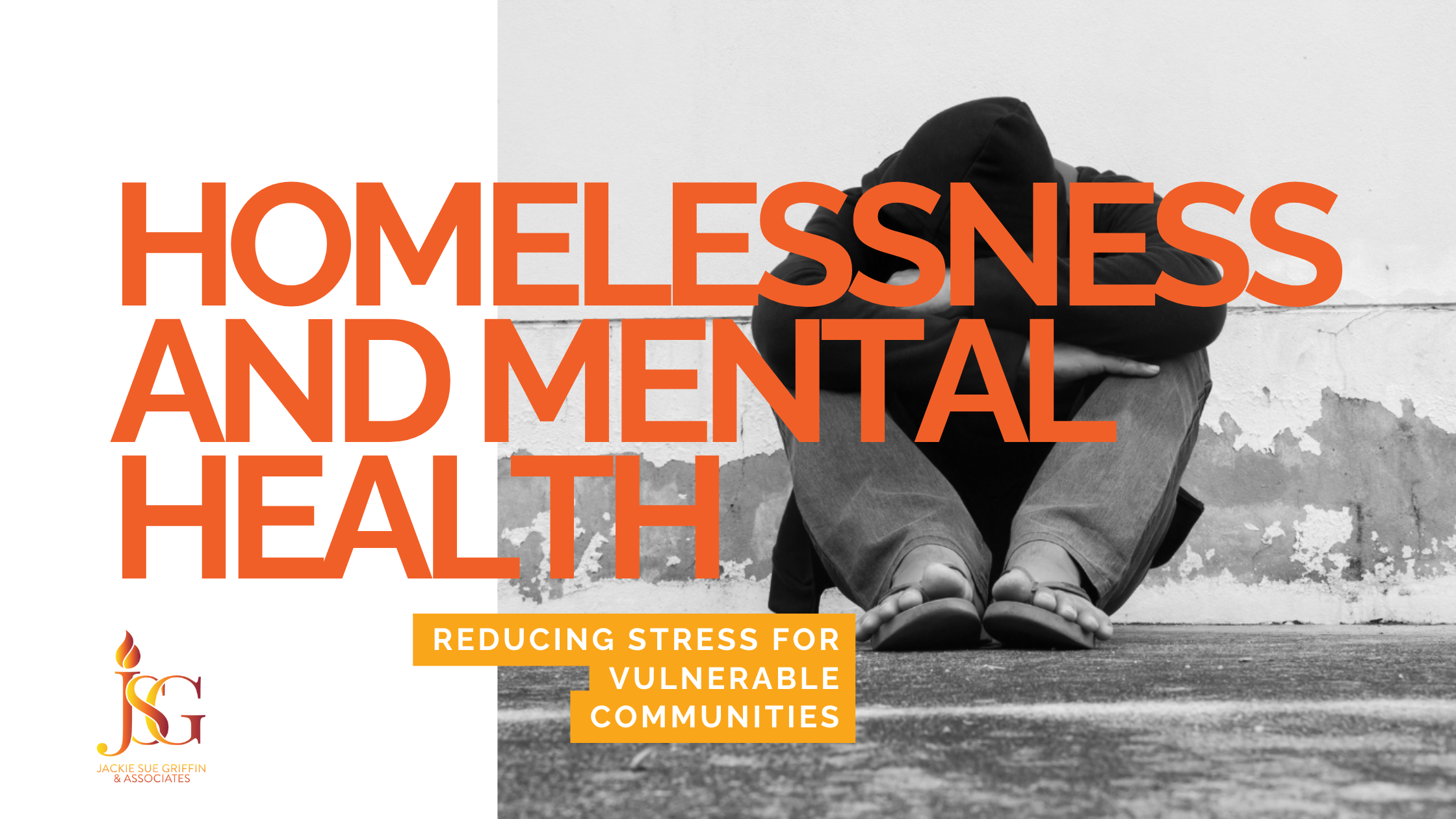
01 Nov The Intersection of Homelessness and Mental Health: Reducing Stress for Vulnerable Communities
Homelessness and mental health are interwoven in complex, often heartbreaking ways, creating a cycle that can feel impossible to break. For those experiencing homelessness, mental health struggles aren’t just statistics—they are daily battles. A lack of stable housing, social isolation, and relentless financial pressures compound these struggles, often trapping individuals in an exhausting loop of survival. At Jackie Sue Griffin & Associates, our mission is to support organizations in developing impactful programs that help break the cycle of homelessness and empower individuals to regain stability and well-being. With thoughtful strategies, nonprofits can play a pivotal role in transforming lives, creating community-centered solutions, and advocating for lasting change.
Understanding the Connection: How Homelessness and Mental Health Intersect
Many people experiencing homelessness face an array of challenges beyond simply finding a place to stay. Chronic stress, lack of stability, and social isolation compound mental health struggles, often leading to or worsening conditions such as anxiety, depression, and PTSD. At the same time, untreated mental health issues can make it harder for individuals to secure stable employment or housing, trapping them in a cycle that’s hard to escape. Recognizing this cycle helps nonprofits develop services that offer practical support while addressing the emotional toll on those they serve.
Building Stress-Relief Strategies into Programs
Effective support requires strategies that not only provide shelter or financial aid but also reduce the overwhelming stress that homelessness brings. One approach is mindfulness-based stress reduction (MBSR), which has proven helpful in vulnerable populations by building coping skills and fostering resilience. Introducing mindfulness programs within shelters or community outreach initiatives can provide people with valuable tools to manage stress and improve mental well-being.
Access to nature-based therapies also offers significant benefits. Green spaces, whether local parks or community gardens, can help reduce anxiety and promote a sense of peace. For nonprofits, establishing partnerships with local recreational areas or creating outdoor programs is a relatively low-cost way to boost mental health outcomes for those experiencing homelessness.
Creating Safe Spaces for Healing and Support
For individuals experiencing homelessness, having access to a community support network can make all the difference. Establishing drop-in centers that offer mental health services, social support, and access to basic necessities creates a much-needed sense of belonging. Nonprofits can serve as the catalyst for these spaces, offering practical help and emotional support in an accessible environment.
These hubs can also encourage community involvement. Engaging local businesses, volunteers, and other nonprofits in support initiatives can expand resources and bring together a compassionate community network. This network not only delivers services but also fosters empathy and helps reduce the stigma surrounding homelessness, making it easier for individuals to seek and receive the help they need.
At Jackie Sue Griffin & Associates, we work closely with nonprofits to design and implement programs that directly address the intersection of homelessness and mental health. By focusing on strategies that build resilience, reduce stress, and foster community support, we help organizations create sustainable, transformative solutions for those experiencing homelessness.
Our vision is to empower nonprofits with the tools, insights, and community connections necessary to make a real impact. Together, we can create programs that do more than just offer temporary relief—we can help break the cycle, allowing individuals the opportunity to rebuild and thrive. Through collaborative action, empathy, and dedication, we can build communities where everyone has a chance at a stable and hopeful future.

No Comments